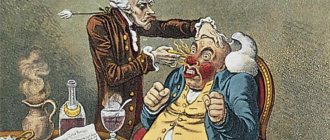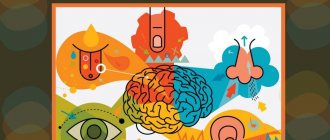A person spends a third of his life sleeping, which means it is extremely important for health. What is its significance?
For decades, psychologists and neurologists have been studying sleep and its impact on well-being and performance.
Nowadays, due to the fast pace of life, stress and hard work, the problem of lack of sleep is especially acute. After reading this article, you will learn the secrets of perfect sleep and awakening.
Natural reboot of the whole body
Sleep is thought to have evolved around 180 million years ago in reptiles. When warm-blooded mammals separated from cold-blooded mammals, a new need arose - to conserve energy.
During sleep, we not only rest - our body is restored, and the neurons are “cleansed” and process the information received. The cerebral cortex is made up of many neurons and nerve fibers that operate continuously throughout life. When we sleep, our brain forms new connections, and the more neural connections, the more active mental activity. Unhealthy substances that enter the body are processed and neutralized during sleep. Cerebrospinal fluid removes metabolic products and restores cell structure.
Our well-being and emotional health depend on how the whole process proceeds. It is known that while we sleep, the material that forms the basis of our beauty is produced - collagen.
Beauty is impossible without sleep. This is the most common protein; it is responsible for the integrity and elasticity of connective tissues. Thanks to it, damaged areas of the skin are restored. Without proper sleep, the skin gradually loses its elasticity, and bruises form under the eyes due to depletion of the fat layer under the eyelid. Two types of collagen fibers are involved in the formation of new tissues. The first ones are thicker and stop changing when a person reaches 17-18 years old. The second ones are thinner and are destroyed during wakefulness, but in their place new fibers are formed during sleep.
The main task of sleep is to provide rest to the body. Sleep also plays an important role in metabolic processes, restores the immune system and nervous system.
Our skin contains almost 70% collagen.
Prolonged sleep protects us from premature aging, helps process and absorb information, increases the flow of fluid to the brain and removes toxins.
Functions
Sleep control is carried out by complex processes occurring in the nervous and endocrine systems. Substances that transmit impulses from nerve cells to brain tissue are responsible for the process of falling asleep and body functions during sleep. These neurotransmitters include the hormones serotonin, melatonin, acetylcholine, norepinephrine, and dopamine.
If you can live 10 days without food and water, you cannot live without sleep. Therefore, you need to sleep in order to be healthy and not grow old longer. Sleep is important for a young, growing body. After all, growth hormone is produced when the child is deeply asleep. People need to sleep more during illness so that the body recovers faster. Those who have healthy sleep can remember and learn successfully.
When, for certain reasons, we do not sleep for two or three days, the brain is able to withstand the load. But constant lack of sleep affects the condition of the individual. He becomes irritable, cannot reason logically, and is capable of doing strange things. He begins to have hallucinations, and from them to insanity is one step away. Only adequate, optimal sleep can restore health.
It is by how the patient sleeps that the doctor can diagnose his pathological condition. Disturbance in the process of falling asleep leads to:
- diabetes mellitus;
- hypertension;
- obesity;
- stroke or myocardial infarction;
- depression.
A period of night rest is useful for the normal flow of thought processes. Disorders of thinking and perception, memory and attention develop from lack of sleep.
Normal sleep is the key to health
Strengthens protection against bacteria and viruses
The human body produces hormones that stimulate growth, cell reproduction and regeneration, and also regulate the functioning of the immune system.
It forms the necessary set of cells and proteins that protect the body from foreign viruses and bacteria. If there are not enough of them, then we are susceptible to infections and catch colds easily even in the summer heat. Sleep problems have been proven to disrupt both innate and adaptive immunity.
Innate and adaptive immunity Innate is a broad type of defense that is inherited, genetically, from parents to children. Adaptive immunity, also known as acquired immunity, develops throughout life and includes defense mechanisms that target specific threats.
Arik Prather, an assistant professor in the Department of Psychiatry and Behavioral Sciences at the University of California, conducted an experiment to clearly show how sleep and immunity are connected. The experiment lasted two weeks, during which volunteers were injected nasally with common cold bacteria. As a result of the study, it turned out that among the sick there are three times more of those who sleep less than 7 hours.
What happens to the immune system while we sleep?
- If you don't get enough sleep, your body produces fewer T-lymphocytes - cells that eliminate foreign bacteria. Lack of sleep prevents the creation of new ones, so the body spends all its energy to restore immunomodulatory cells.
- The production of cytokines—hormone-like low-molecular proteins—is activated. They are involved in immunoregulation and help form a response, which is very important for protection against viruses. For those who are sick, this inflammatory response can help in recovery by strengthening innate and acquired immunity.
- Breathing and muscle activity slow down, freeing up energy for the immune system to restore the body in the morning.
- Healthy sleep not only helps the brain efficiently process daytime information, but also strengthens immune memory. While we sleep, the components remember unwanted antigens and react to them faster, thereby making our body resistant to repeated diseases.
T-lymphocytes destroy damaged cells of their own body
Resting at night not only helps the brain efficiently process daytime information, but also strengthens immune memory. While we sleep, the components remember unwanted antigens and react to them faster, thereby making our body resistant to repeated diseases.
How to create conditions for good sleep
Sleep in a darkened room as much as possible: it is in complete darkness that the production of melatonin, the sleep hormone, occurs most effectively. Even a short sleep in the dark gives a greater feeling of vigor than a long rest in a lighted room.- Create silence in the room, and if this is not possible, an alternative to silence can be white noise, drowning out other sounds. Special devices - white noise generators - can be purchased at any sleep supply store.
- Buy a humidity meter (hygrometer) and make sure that the bedroom has its optimal levels: 55-60%. To maintain the desired humidity, use an ultrasonic humidifier.
- Choose a temperature in the room that is pleasant for you personally and maintain it.
- Ventilate the room in the evenings, this is very important for healthy sleep.
- Sleep on a big bed. For a double bed, the optimal width may be 180 or 200 cm.
- Choose a comfortable mattress from well-known brands: this way you can be sure that no harmful components were used in its manufacture. Change it every 7-8 years. Buy a removable cover and wash it regularly. Turn the mattress over every 3 months and vacuum it and the base of the bed regularly. Give preference to orthopedic mattresses.
- Sleep on a good, medium-height pillow. Prefer pillows made from buckwheat or high-quality synthetic fillers in the form of balls or fibers to down pillows. Wash them at least once every 6 months, change them at least once every three years.
- Buy a blanket made from breathable materials. A good option is a blanket made of wool, silk, or light synthetics.
- The best underwear is one that does not contain dyes with a chemical smell, is dense, made from natural fabrics, absorbs moisture well and is pleasant to the touch.
Improves memory
Let's remember the classic homework task - learn a poem. Many read it several times and went to bed. If we managed to sleep well, in the morning we get a “fresh” head and a memorized verse. This entire process means that declarative memory has successfully processed the information.
Declarative memory A type of memory in which experience and acquired knowledge are reproduced voluntarily.
Many tests have shown that new material is better absorbed and remembered if a person becomes familiar with it before going to bed, since this type of memory is responsible for the entire thought process as a whole. Moreover, constant lack of sleep slows down the functioning of declarative memory - sleep-deprived people reproduce 40% less information than those who do not have sleep problems. Also, the lack of adequate sleep affects the quality of thoughts: those who sleep less than 7 hours broadcast negative facts twice as often as good news. It turns out that lack of sleep is to some extent associated with the occurrence of neuroses and depression.
The best ideas come in a dream Another interesting fact is sudden insights - insights. Many discoveries came to their creators in a dream. For example, the chemist Friedrich Kekula had an image of the structure of a benzene ring in a dream. James Watson saw two intertwined snakes, which he later interpreted as a symbol of the DNA molecule. Karl Lagerfeld, a famous fashion designer, said that he sees all the best designs in his dreams, so he always keeps a notebook next to his bed.
When we sleep, our brain forms new neural connections, and the more connections, the more active mental activity.
People who get enough sleep do better in sports
The US National Institutes of Health conducted studies that showed that quality sleep improves athletic performance. Basketball players took part in the tests; Those who got regular sleep experienced improvements in speed, accuracy, reaction time and mental well-being.
There was another study regarding older women. Short sleep directly affected physical fitness. The trial involved more than 2,800 women and found that poor sleep was associated with slower walking, lower grip strength and greater difficulty performing independent activities.
To summarize: Prolonged sleep improves many aspects of sports and physical performance.
Triggers metabolism
The fewer hours we sleep, the greater our need for fatty, high-calorie foods. Chronic lack of sleep leads to hormonal changes, and due to excessive stress, the body needs more energy and tries to take it in other ways, such as food. Scientists from Leeds have found that lack of sleep affects blood sugar levels, making it more difficult to control snacking.
The process of synthesis of night hormones
How it works?
Several hormones are responsible for satiety or, conversely, hunger - ghrelin, leptin, insulin and cortisol. If a person sleeps little, then the release of leptin and ghrelin, the main regulators of appetite, is primarily disrupted.
- Leptin acts on hypothalamic receptors, thereby suppressing appetite and speeding up metabolism. Typically, hormone levels decrease during wakefulness and increase during sleep. Ghrelin is responsible for the feeling of hunger, and due to lack of sleep, its secretion increases and leads to increased production of cortisol. As a result, glucose synthesis deteriorates, insulin sensitivity increases, and metabolism slows down.
- Insulin is needed to remove excess sugar from the blood. Due to lack of sleep, carbohydrate metabolism in cells is modified and sensitivity to the hormone decreases. The lower the sensitivity, the more insulin is required. The excess sends a signal to the liver to convert food into fat so that the excess does not return to the blood. In such a situation, the risk of gaining excess weight doubles.
- During the slow-wave sleep phase, glucose metabolism is regulated, and it, in turn, provides energy and saturates the body with water. Adequate sleep helps the kidneys work properly and allows the substance to pass into the urine. And with proper synthesis, the pancreas processes glucose independently.
- An important element in metabolism is somatotropic hormone (somatotropin or growth hormone). It supports metabolism and cell growth in the body, increases endurance and skeletal strength.
- While we sleep, our natural anabiotics are synthesized, the chemical balance in cells is restored, and decay products are eliminated. Lack of sleep or sleep disturbances reduce the secretion of somatotropin, the body experiences stress, which provokes the production of cortisol. The process of adaptation to stressful conditions begins, ghrelin, the hunger hormone, begins to be released, due to which appetite increases. Leptin levels decrease, resulting in the desire to consume fatty and high-calorie foods.
Sleep directly depends on the quality of the food we eat. This is an interconnected process - lack of sleep provokes the consumption of stimulant foods (tea, coffee, spices) and fast carbohydrates.
A proper routine helps you maintain energy and eat a balanced diet. At night, the body replenishes its strength, so it is easier to control appetite during the day.
Myths
- No need for cold.
- Alcohol doesn't help.
- Exercising before bed does not improve sleep.
If your body is colder than you are comfortable with, then you cannot fall into deep sleep.
People fall asleep deeper and easier when they warm up before bed. But it is necessary and good to ventilate and provide access to oxygen. Alcohol helps you fall asleep quickly, but superficially. People often wake up at night from acetaldehyde poisoning.
If a person has problems with insomnia and wants to improve sleep, he will have to give up all psychostimulants - alcohol, caffeine, nicotine.
Nicotine also stimulates, it competes with acetylcholine. Neuroscientists hate Alan Cara because he says you can sleep for 8 hours without smoking. During sleep, the body does not need acetylcholine or its replacement nicotine. This is fine.
People who have physical activity sleep better, but not right before bed. If you ran somewhere quickly before going to bed, adrenaline is released into your blood, which speeds up your heart rate, which should slow down before going to bed.
Normalizes hormonal levels
Emotions, psychological state and beauty in general depend on how hormones work. Our endocrine system owes a lot to the “sleep hormone” - melatonin. It regulates circadian rhythms, the internal clock that makes us fall asleep and wake up in the morning. The quality of sleep depends on how this hormone is synthesized.
Melatonin carries out many physiological processes due to specific receptors with immunomodulatory, tonic and even antidepressant effects. It also regulates:
- Body temperature;
- Blood pressure;
- Cortisol levels;
- Reproductive function;
- The work of the gastrointestinal tract.
How is melatonin produced?
The sleep hormone is produced exclusively in the dark - reducing light increases secretion. The retina of the eye reads information about the surrounding world and sends a signal to the pineal gland (pineal gland) about the change in time of day. Therefore, the spectrum of lighting in the evening is very important, since our eyes have light-sensitive cells containing the pigment melanopsin. It is perceived by a group of neurons as a cool shade of blue and slows down the synthesis of melatonin. Artificial room lighting and radiation from gadgets contain an irritating shade, which is why it is not always possible to fall asleep quickly.
Depending on the time of day, the body produces different hormones
A lack of melatonin leads to disruption of the sleep cycle, that is, wakefulness at night, which is directly related to excess cortisol.
Cortisol
Cortisol, or the stress and activity hormone, is usually produced in the morning before waking up. When we wake up, we are cheerful, active and ready for a new day. The hormone level then decreases throughout the day. Thanks to it, concentration, blood circulation and glucose synthesis improve - all this saturates the body with energy and helps overcome stress.
Synthesis The stress hormone appears if our body feels threatened. The hypothalamus secretes special substances that enter the pituitary gland, after which it sends a signal to the adrenal glands. In response, the adrenal cortex releases cortisol, and it returns to the brain, thus influencing thinking processes. The relationship between the brain and the kidneys is called the hypothalamic-pituitary-adrenal axis.
Serotonin
If all processes are working properly, we feel good, and serotonin is considered the main builder of “happiness”.
The hormone is secreted during the day and affects the amount of melatonin at night. When its level is normal, we feel a surge of strength, vigor, and a feeling of lifting our spirits. Its main activity occurs in the cerebral cortex, as well as in the mucous membranes of the gastrointestinal tract, hence the expression “butterflies in the stomach.” The hormone of happiness is created by the aromatic amino acid tryptophan, which a person does not produce on his own, but receives in the fresh air or from foods high in the substance. For example, poultry, fish, milk, dark chocolate.
In addition to mood, serotonin affects self-control and emotional stability. It controls the susceptibility of brain receptors to stress hormones - adrenaline and norepinephrine. People with a lack of serotonin are susceptible to anxiety; minor reasons can cause a strong stress reaction. Excessive production of cortisol and adrenaline can lead to depression and lack of sleep.
All chemical processes are interconnected with each other, and hormonal balance is important for our body to remain strong and healthy. It is the stress load caused by low melatonin and high cortisol that is one of the main causes of fatigue, anxiety and early aging. Healthy sleep helps you follow biological rhythms - a universal tool for adaptation to the environment.
What not to do before bed - Craig Ballangtyne's formula
A popular American lifestyle advocate and fitness trainer named Craig Ballantyne created the ideal sleep form - “10-3-2-1-0”.
Each number carries a specific meaning, namely, it suggests limiting a number of actions for a certain period of time (in hours) before going to bed:
- 10 – elimination of caffeine. Therefore, it is advisable to drink drinks containing it (tea, coffee, energy drinks) only in the first half of the day.
- 3 – Avoid late meals. If you eat shortly before rest, the body will be busy digesting food, which means the process of falling asleep will become more difficult. You should also avoid alcohol, which excites the nervous system and negatively affects sleep.
- 2 – finish the job. The body will gradually return to normal, calm down, and the emotional state will stabilize.
- 1 – turn off all electronic devices. Bright pictures on the screen and loud sounds excite the nervous system and make it difficult to fall asleep.
- The last digit – 0 – is the number of times the alarm can be set in the morning. Craig is convinced that rising at the first signal is the most correct decision.
Healthy sleep = healthy genes
Israeli scientists from Bar-Ilan University conducted a study on freshwater ray-finned fish, studying changes in neurons during daily biocycles. The experiment was carried out using microscopy, visualizing the activity of fish chromosomes. By observing, scientists found out that sleep activates and restores the storage of genetic material in cells. It supports the synthesis of proteins, ribosomes and nucleic acids in the nucleus and triggers renewal.
Even one sleepless night can lead to cell death
As you know, DNA information is transmitted through cells to subsequent generations. The better the material, the healthier the genes, and sleep disturbances can trigger cell mutations. A defective mechanism triggers pathological reactions that irreversibly damage genes and lead to the death of neurons. Because of this, the cell's defense system, which is programmed into DNA, may not work.
Cell death With constant lack of sleep, the affected cells do not die, but become malignant. Their division within healthy ones leads to the development of a cancerous tumor.
Healthy sleep also promotes the development of oxytocin, the “cuddle and love hormone,” which controls libido and reproductive function. The substance provokes the production of testosterone in men, especially high concentrations of oxytocin are observed during childbirth and lactation in women. It helps build trust between people and blocks adrenocorticotropic stress hormone.
By maintaining good sleep hygiene, we extend our lives and ensure good health for our offspring.
Data processing
Because We sleep with the “brain”, it can be assumed that we sleep for
the brain.
The modern neurobiological mainstream thinks that sleep is needed for information processing and the transition of information from short-term memory to long-term memory.
There was a 2009 study where rats were taught to go through a maze, and when they fell asleep, they scanned the rat's brain and saw that the brain consistently activated the same areas as when going through the maze.
Here is a large overview of research on sleep.
What is healthy sleep?
If after a full night you do not feel sleepy, but remain alert throughout the day, then you know exactly what it means to get a good and proper sleep. From a physiological point of view, sleep duration is not the main quality factor - it is an individual process, each person needs different amounts of time to rest. It's really important to get enough time for all stages of sleep, especially slow-wave (deep) and REM sleep. Basically, it takes 7.5 - 8 hours for all cycles to complete. But there are exceptions, about 5% of people need less than 6 hours, and about 10% will need 9 or more hours to feel good. As a rule, during this time sleep:
- Restored the immune system. This is especially important during the pre-cold period, since during this time the body has time to get acquainted with the virus and develop response antibodies.
- Passed all metabolic processes.
Rebooted hormones. Many hormones also work according to circadian rhythms, and there are those that are produced only during sleep. For example, an important growth hormone, which starts the process of renewal of all cells.
An effective remedy for any ailment is proper sleep.
Why do we “twitch” in our sleep?
The movements that we perceive as “jerking” during sleep are called “night twitches.” They are caused by muscle contractions in the body, which are involuntary. Contractions occur in different parts of the body or throughout the body. The effect may surprise or even frighten you. But it is important to know this: movements occur when the brain shifts from control of the body to rest mode, giving the muscles of the arms, legs, face and torso involuntary reactions.
Currently, there are two main theories why we shudder and twitch in our sleep:
| 1 | Muscle relaxation. During the transition from wakefulness to sleep, when the brain continues to be active while the body is already relaxing. The brain regards this relaxation as a fall or danger, and simply wants to wake us up. |
| 2 | Stress and its consequences. This also includes background anxiety, prolonged physical and mental fatigue, and various worries. |
If twitching occurs frequently and brings discomfort and anxiety, you need to consult a specialist to rule out neurological diseases (muscular dystrophy, epilepsy, apnea syndrome, etc.). A somnologist will conduct the necessary studies and be able to determine the causes of twitching [A. Malkov, 2020].
Lucid dreaming
Science recognizes them.
There are different technologies, they can be found on the Internet. They were proven because Lucid dreaming occurs during the rapid eye movement stage. It was agreed in advance with the subjects in the laboratory that if they had a lucid dream, they would give signals with their eyes.
This allows researchers to correlate what an encephalogram or tomogram shows during a lucid dream. At this moment, the brain is in a state between rapid-wave sleep and wakefulness.
During REM sleep, the prefrontal cortex is usually suppressed. During a lucid dream she is also depressed, but not as much.
Gamma waves with a frequency of 25 to 120 Hz appear in the frontal and parietal regions. These waves are poorly studied because... they look like simple muscle contractions, and many devices simply filter them out.
But it is assumed that at a frequency of 25-120 Hz the brain works on some serious tasks and concentrates. Such waves are not typical for sleep, but during lucid dreams such waves exist.
Ursula Voss tried using transcranial alternating current stimulation to make people dream lucidly. When 25 or 40 Hz waves were applied to the brain, people were more likely to have lucid dreams.
Prophetic dreams
Many people have often heard that prophetic sleep and dreams exist. Interesting facts about this phenomenon can be read in specialized literature. However, this phenomenon does not yet have an evidence base. It is believed that a single disturbing dream can be easily ignored. But if an unpleasant dream is repeated several times, has a negative meaning, and awakens feelings in a person, then it’s worth thinking about. Perhaps this is how the brain sends warning signals that a person simply does not pay attention to during daytime wakefulness.











